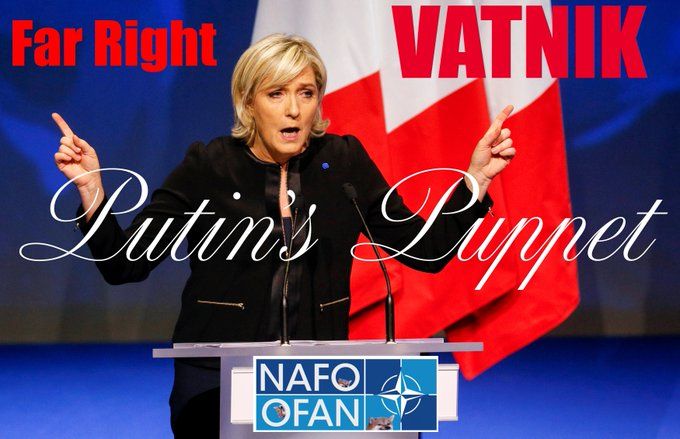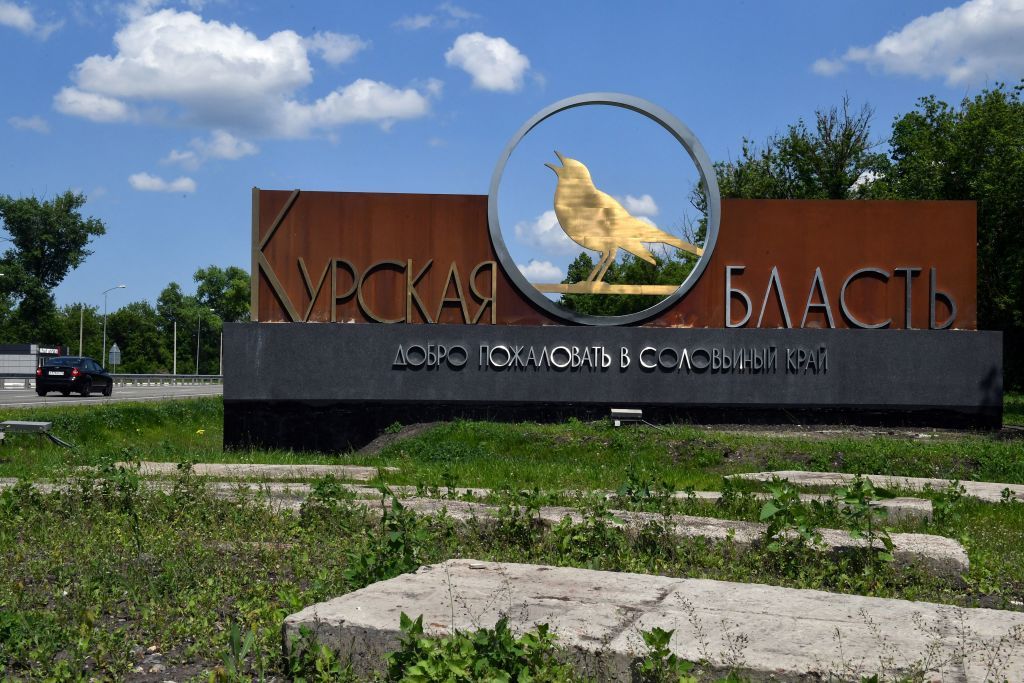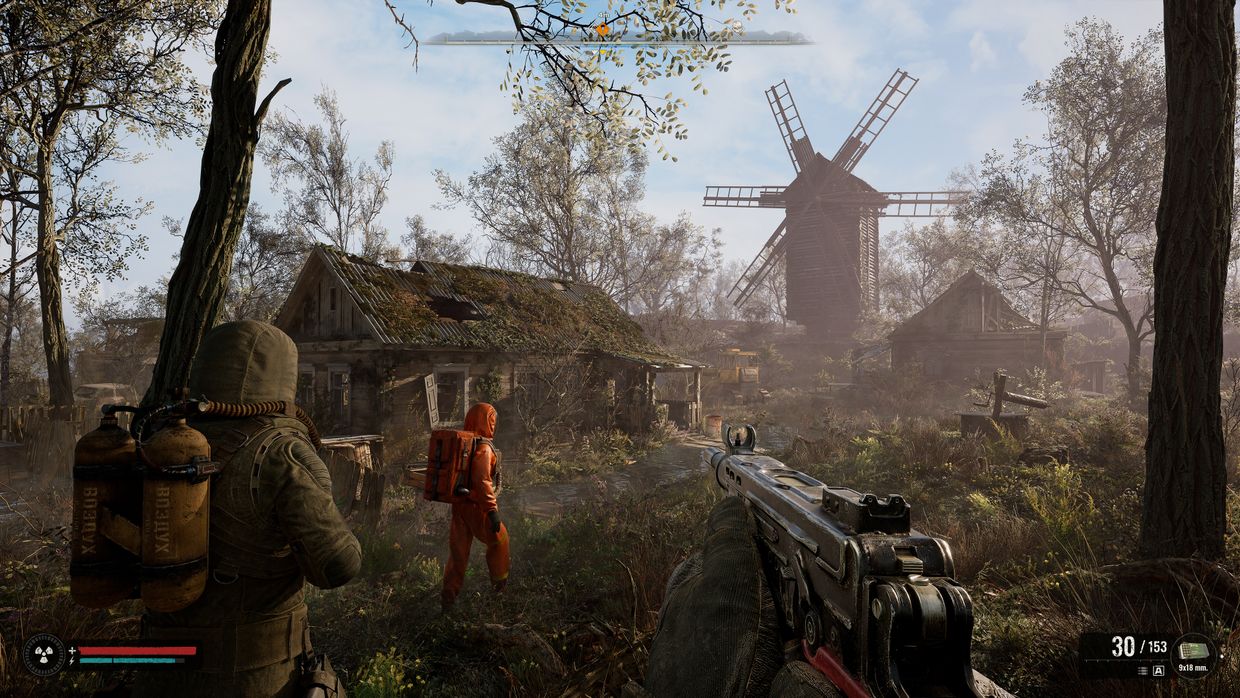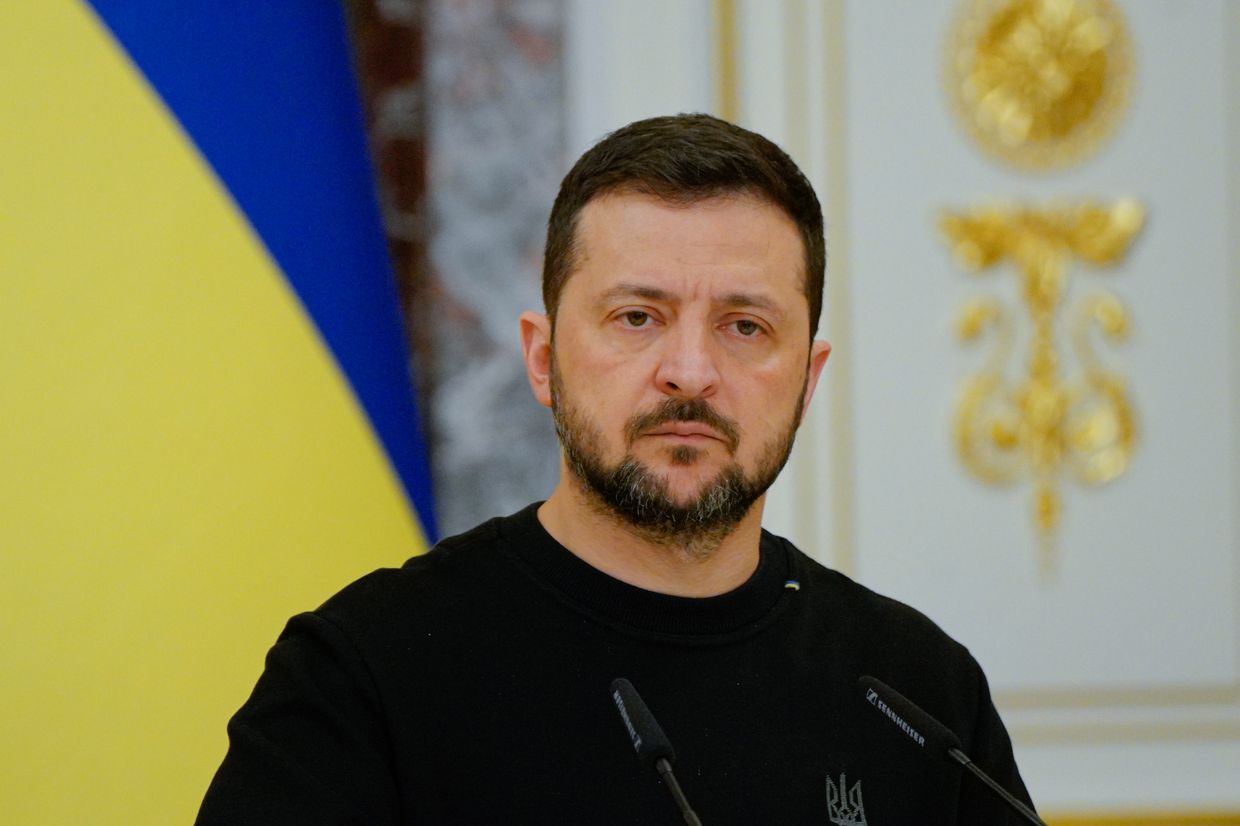The recent leak of data from the hacked emails of Putin’s henchman Alexander Babakov, shed light on the Kremlin’s efforts to promote its interests in France and its ties to French politicians, primarily Marine Le Pen.
Marine Le Pen
Marine Le Pen has been the leader of the far-right National Front party (National Rally from 2018) since 2004 and was a member of the European Parliament at the time of the correspondence. In 2017 and 2022, she successfully lost twice in the second round of the presidential election to Emmanuel Macron. However, the fact that a politician with anti-European views and dubious ties to dictator Putin’s henchmen even makes it to the second round of elections is scary.
In early 2017, pro-Russian candidate #MarineLePen called anti-#Russian sanctions “absolutely ridiculous”. If she wins the presidency, Le Pen promised to recognise Crimea as part of Russia, as she does not consider Crimea’s annexation illegal. She also added that she sees no reason to doubt the legitimacy of the referendum held on the peninsula. After Russia launched a full-scale war and invasion of #Ukraine, Le Pen changed her rhetoric. However, her narrative favoured the #Kremlin, as Le Pen has consistently opposed the provision of arms to Ukraine.
Alexander Babakov
Since 2012, #AlexanderBabakov has been Vladimir Putin’s “special representative” in charge of relations with Russian organisations abroad, making him one of the key men in the Kremlin’s networks of influence in Europe. Alexandr Babakov has been Vladimir Putin’s “special representative” in charge of relations with Russian organisations abroad, making him one of the key men in the Kremlin’s networks of influence in Europe. Babakov has overseen the Kremlin’s schemes and networks to spread Russian political and cultural influence in Europe, particularly France.
According to Babakov’s correspondence, it turns out that he was responsible for organising visits by French politicians and negotiations with high-ranking Russian officials. Babakov was the key man in the talks between Le Pen’s National Front and the Kremlin on the Russian loan to the French far-right party in 2014. This information became known in 2017 in the journalistic investigation by the French media Mediapart .fr. And now, leaked #BabakovEmails have added more exciting details and the hot link between Le Pen and Babakov himself.
Babakov regularly discussed ties with Le Pen in his emails as he saw that through Le Pen, Moscow could promote its political agenda in France and on the European stage, mainly regarding the annexation of Ukrainian territories. Russia paid Paris-Moscow trip for French far-right politician Jean-Luc Schaffhauser. Unsurprisingly, the Kremlin paid the tickets for the trips from Paris to Moscow for French politicians from the far-right National Front, namely MEP Jean-Luc Schaffhauser.
1/4 Next 
Le Pen squeezes putin for a loan (using an intro from Babakov).
The recent leak of data from the hacked emails of Putin’s henchman Alex
Since 2012, Alexandr Babakov has been Vladimir Putin’s “special representative” in charge of relations with Russian organisations abroad, making him one of the key men in the Kremlin’s networks of influence in Europe. To highlight pro-Russian views and French far-right-Moscow ties, there were not only Russia Today and Sputnik but also very loyal French journalists. And there is some evidence in Babakov’s emails. At least, there are interview requests from Raphaël Tresanini, the Canal+ journalist. In his letter, the journalist writes that the loan the Russian bank gave Marine Le Pen’s party intended to “support traditional values of France“.
Babakov gave Le Pen a hand to arrange a meeting with Putin and get Russian loan. Marine Le Pen met Russian dictator Vladimir Putin in March 2017 in Moscow. Putin claimed he was not seeking to influence French presidential elections but met Le Pen as she represents a “fast-growing element” in European politics.
Marine Le Pen called for lifting EU sanctions against Russia, arguing they are “counterproductive”. She also stated that the Russian annexation of Crimea was not illegal. These statements go along Russian propaganda and Moscow’s interests while contradicting international law. These declarations helped the Kremlin to legitimise the unlawful annexation of Crimea in the political discourse on the international stage.
As the emails show and a previous Mediapart investigation proved, Marine Le Pen’s Russian funding was organised around Alexander Babakov, Putin’s adviser and special representative of the president for cooperation with organisations of compatriots abroad. Leaked emails showed political interference by two Russian lobbyists, attached to the #informNapalm report.
2/4 Next 
Schaffhauser and Babakov: a perfect match to arrange funding for the French far-right:
The National Front received a loan from the First Czech-Russian Bank in September 2014. According to information obtained by Re:Baltica and Mediapart .fr
Marine Le Pen received €9 million from a Russian bank in exchange for supporting Russia’s policy towards Ukraine. Behind the scenes of the National Front’s Russian loans, a network was set up with its intermediaries and opaque structures to help Marine Le Pen’s party obtain millions of dollars and conceal the origin of these funds. Underlying this scenario is the decisive role played by Alexander Babakov, in charge of relations with Russian “patriotic” organisations abroad.
Babakov and those close to him, between 2014 and 2016, put the National Front in contact with three Russian banks with dubious profiles during meetings in Paris and Geneva. According to Mediapart, in 2014, Jean-Luc Schaffhauser and Alexander Babakov acted as intermediaries in obtaining a loan from the First Czech-Russian Bank for the National Front. On the French side, the operations were supervised by Jean-Luc Schaffhauser, an MEP and Marine Le Pen’s campaign team member, as seen in Babakov’s emails. His foundation received funds from the British Virgin Islands via a company in Luxembourg.
According to Mediapart, the French financial prosecutor’s office launched a preliminary investigation into Schaffhauser in February 2016 after receiving information from the French Ministry of Finance’s anti-money laundering unit, Tracfin. Law enforcement agencies are trying to establish the origin of Schaffhauser’s funds. In 2014, he publicly admitted receiving a €140,000 fee from the HRHF for his intermediary services.
But the case also has a solid political dimension: several exchanges of emails revealed that Russian intermediaries advised Jean-Luc Schaffhauser in several of his speeches at the European Parliament, thus showing the pro-Putin influence behind the National Front’s Russian funding.
According to Mediapart, on 17 March 2016, Schaffhauser and Babakov met in Geneva to discuss further plans for the National Front to obtain loans from other Russian banks. Mediapart cites a fragment of Schaffhauser’s email from July 2014, two months before the loan was received, in which he wrote that “Marine is ready to send a statement to Reuters” on the situation in Ukraine. The recipient of the letter was Alexander Vorobyov, who, according to the newspaper, also obtained the money from the Russian bank. Vorobyov offered the MEP an example of a statement on the situation in Ukraine that Le Pen was to make
Babakov’s patriotism and ties with France have various dimensions. As revealed by French media, he owns property in France – a château 37 km from Versailles and a flat in Paris – registered for his wife and children. Schaffhauser is a perfect match for Babakov in Paris. He knows ways to get funding from Moscow. According to information obtained by Re:Baltica and Mediapart .fr - in 2014 and 2015, Spencerdale, via the Luxembourg-registered East-West Communication Group, paid 250,000 euros to the think tank Académie Européenne where Schaffhauser is one of the founders.
The European Academy played a central role in the National Front’s search for funding in 2014. On 29 June that year, Jean-Luc Schaffhauser convened a meeting of the board of directors of this “foundation” at his home in Strasbourg. On the agenda was the admission of two Russians to the European Academy, Mikhail Plisyuk and Alexander Vorobyev.
Schaffhauser, who has never hidden his favourable views on cooperation with Putin’s Russia and was one of the international politicians legitimising Crimea’s so-called referendum allowing it to join Russia in 2014, admitted previously that he received 140,000 euros for arranging the previous loan to the National Front from Russia via a Luxembourg-named company which he refused to name.
3/4 Next 
Babakov is the supervisor of Russia’s hybrid efforts to spread influence in France through Russian associations
Babakov’s work on spreading Russian influence in France was focused on more than just Le Pen and the National Front. He had to deal with overseeing Russian organisations. Letters from Russia’s Department for Work with Compatriots Abroad of the Ministry of Foreign Affairs show that Babakov and Putin’s regime tried to promote Moscow views in Europe using associations of Russian nationals, including France. The Kremlin has been using Russian culture as a tool and platform to promote its propaganda to benefit its geopolitical interests.
One of the letters says, “The activities of the Russkiy Mir Foundation in supporting compatriots in 2015-2016”.
“In 2015-2016, the Foundation continued to pursue its goals of promoting the Russian language, which is Russia’s national treasure and an important element of Russian and world culture, and supporting Russian language study programmes abroad.
“In the conditions of the sanctions wars imposed on Russia, the Foundation has become more active in using its status as a non-profit, non-governmental organisation to inform foreign audiences about the real state of affairs and Russia’s policy, to support the Russian-speaking space, and to consolidate all friends of Russia abroad.”
Le Pen’s party has took till September 2023 to pay €6m of the €9m loan to Russia’s Aviazapchast, what happened to the other €3m then one wonders?
Was the Russian loan to the French National Front partly a gift? French presidential candidate Marine Le Pen’s National Rally received a €9 million loan (not €6m?) from the First Russian-Czech Bank in 2014. However, the bank went bankrupt, and this debt was transferred to the successor company – Aviazapchast, a Russian state-owned company servicing Russian aircraft abroad. So, the debt of the French far-right party was bought out through intermediaries by Aviazapchast and is still being paid off.
The Wall Street Journal reported that Le Pen’s party has to pay about €12 million to the Russian company. In 2020, Aviazapchast fell under non-sectoral US sanctions for weapons sales to North Korea, Iran and Syria. At the same time, the company filed a lawsuit against Le Pen’s party to recover debts on the First Russian-Czech Bank’s loan.
French far-right party National Rally has fully now paid back its controversial Russian loan, the party said. The party has paid back over €6 million to Russian company Aviazapchast S.A., including “capital and interest,” (what happened to the €9m then?) - National Rally lawmaker and party treasurer Kévin Pfeffer said in a press release.
But the shadow of the loan has long loomed over the far-right party, with Le Pen heavily criticized over her ties to Russia. Since the Kremlin’s invasion of Ukraine, Le Pen has struggled to shake off her reputation as a pro-Putin politician, despite her attempts to backtrack on previous statements and to condemn the war.
Le Pen’s successor as National Rally president, Jordan Bardella, said he wanted to close the chapter ahead of the EU election next year, to distance himself from Russophile accusations.
Pfeffer said paying back the large sum will force the party to “balance” running the party and campaigning for the European election, but said the party will be “able to maintain our standard of living.” Bardella is planning to pay all party debts — amounting to about €26 million in December 2022 — before France’s presidential elections, slated for 2027.
The National Rally made unprecedented gains in last year’s legislative elections, bagging a record 89 seats, which increased its public funding from €5.2 million to €10.2 million each year.
4/4 Next 
Sources and references:
https://informnapalm.org/en/babakovleaks-putins-henchman-exchanged-mails-with-marine-le-pen/…
https://politico.eu/article/france-marine-le-pen-national-rally-pays-back-russia-loan/…
https://france24.com/en/live-news/20230921-french-far-right-says-russian-loan-repaid…
https://mediapart.fr/en/journal/politique/280923/le-pens-far-right-party-repays-russian-loan-questions-remain-over-links-putin-regime
Please retweet if you enjoyed this - it helps with visibility ! 
















